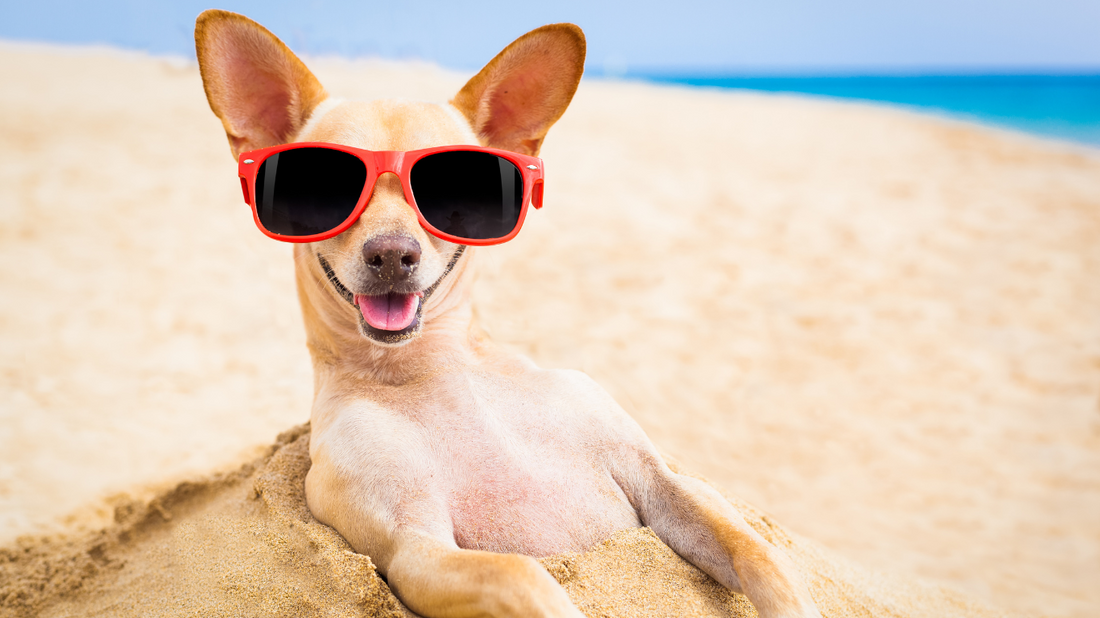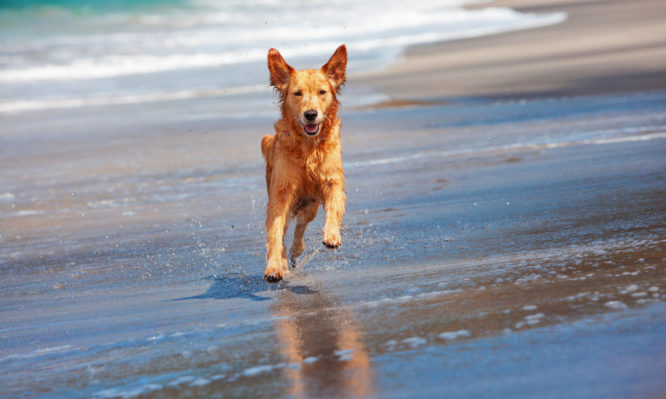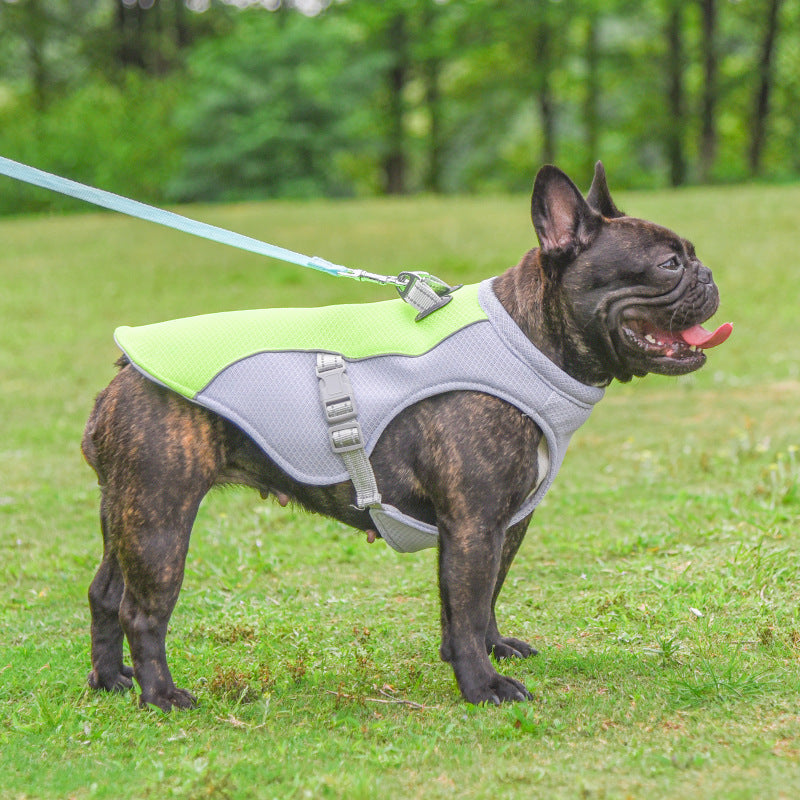
Dog at the Beach
Share
Saltwater and Dogs: Proper Care
Regarding saltwater, it’s useful to know how to protect your pet if they decide to take the plunge. Everything depends on their coat—and sometimes their breed. If your dog is a Labrador Retriever, Chesapeake Retriever, Portugal Water Dog, Irish Water Spaniel, or another breed bred for swimming in saltwater, their coat is naturally oily, making it resistant to saltwater absorption.
Other Dangers for Dogs at the Beach
Sand
The biggest danger for dogs at the beach is sand. Accidentally or during play (they will surely dig for coolness, sand will stick to the ball you throw, and to their paws, which they will lick), they can ingest it. The tiny sand particles become heavy and form solid pieces when wet, potentially blocking the intestinal tract, leading to the serious condition known as bowel obstruction.Hot Sand
Just as your feet burn when walking on the beach sand at noon, the same happens to your dog's paws, which can get burnt more easily. So, for your dog's sake, leave them at the accommodation during the hottest hours of the day.Heat Stroke
Since dogs don’t sweat like we do, their body temperature can rise dangerously on a sunny day at the beach. Therefore, it’s better to keep your dog in a shady and cool place (with plenty of water) during the day and have them with you early in the morning or late in the afternoon.Sunburn
Some dogs are more prone to sunburn than others, depending on their coat type (thin or even hairless) and color (white is more sensitive). It’s not a good idea to use your sunscreen on them, but there are special sunscreens for dogs!Seaweed
Dry seaweed found on some beaches contains toxins. When it absorbs water (inside the stomach), it swells, potentially causing an obstruction that may require emergency surgery. So, be cautious.Hooks
Fishermen frequent many beaches, so be on the lookout for discarded hooks. Every summer, we see many dogs with hooks stuck in their snout, paw, or tongue. Even more serious is when a dog swallows a hook. This can cause severe injuries to their mouth, esophagus, or stomach.Dead Fish
Dead fish washed up on the beach may contain dangerous toxins or be spoiled. Never let your dog eat dead fish or anything else they find on the beach. Also, don’t let them eat food meant for human consumption (e.g., chips, nuts) that other beachgoers might offer. This could lead to gastrointestinal issues.Hygiene and Legislation
Dogs don’t urinate or defecate in the water instinctively. They will seek a corner to relieve themselves. It’s good to walk your dog before arriving at the beach. Always carry special bags for waste, in case of accidents on the shore. Always bring their health book, which records the necessary vaccinations and deworming treatments.Shelby's Recommends: Heat Resistant Beach Vest


